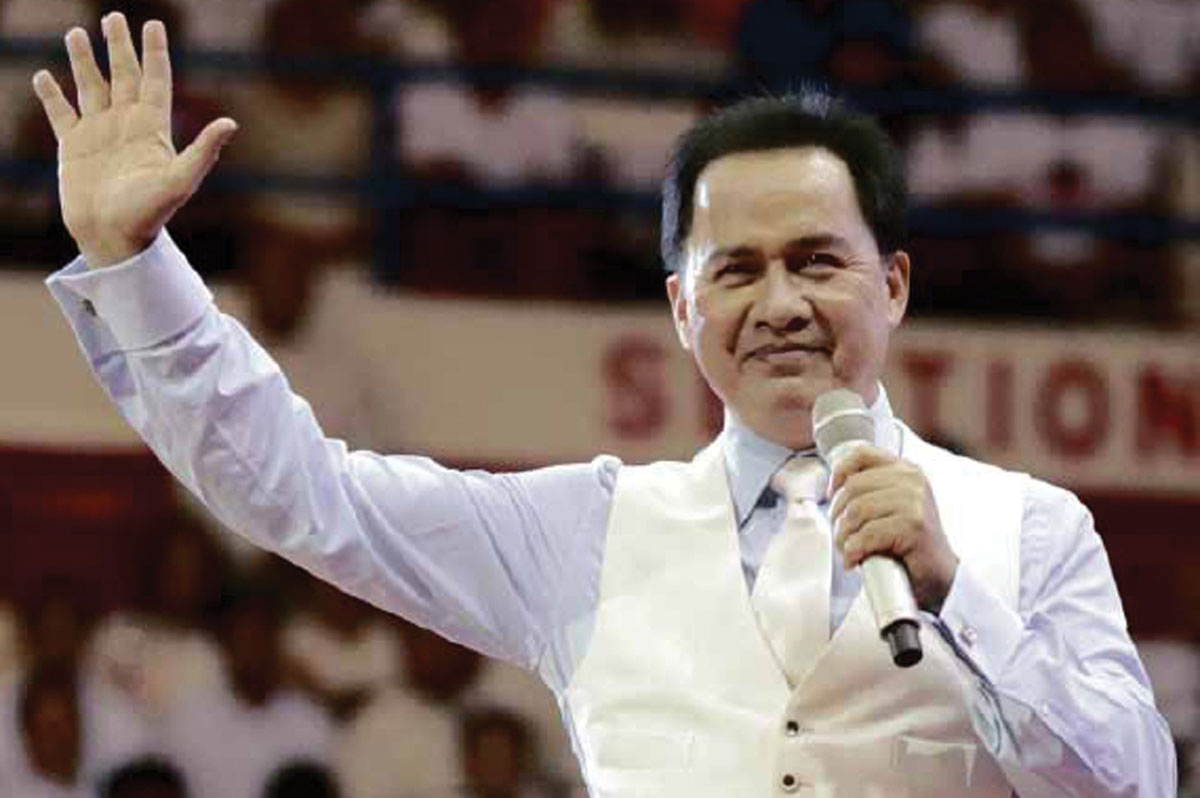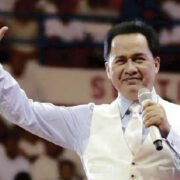
THE possible extradition of Filipino televangelist Apollo Quiboloy back to the United States may be deferred as a local court reviews a pending case against him, according to the Philippine Department of Justice (DOJ).
“Maaring mangyari diyan ay hindi muna itutuloy ang extradition hanggang hindi natatapos ang criminal prosecution dito sa Pilipinas kasi meron kasing offense apparently committed dito sa atin eh (What might happen is the extradition may not proceed until the criminal prosecution against him here in the Philippines is not finished he apparently has an offense committed here),” Justice Secretary Menardo Guevarra told ABS-CBN’s TeleRadyo.
“May karapatan din ‘yung kung sino man ‘yung biktima na i-prosecute ‘yung kaso dito sa ating mga korte. Kaya made-defer ‘yung extradition process (Whoever filed a case against him here has a right to see to his prosecution in our courts. So, the extradition process may be deferred),” he added.
In December 2019, a woman filed rape, child abuse, and human trafficking charges against Quiboloy and five other church members, claiming she was raped by the Kingdom of Jesus Christ, The Name Above Every Name (KOJC) founder in 2014 when she was a minor.
The Davao City Prosecutor’s Office dismissed her case in 2020 for lack of sufficient evidence, but the woman appealed to the DOJ, which is now reviewing her case’s dismissal.
Guevara said that the agency has yet to receive a request from the U.S. to extradite Quiboloy.
In a previous statement, the Justice chief assured that Quiboloy will not be accorded any special treatment should the U.S. send an extradition request.
“The DOJ, through the Inter-Agency Council Against Trafficking, will perform its mandate under the law, regardless of the persons involved,” he said.
He also pointed out that the Philippines has “an existing agreement on mutual legal assistance in criminal matters with that country.”
“Our treaty obligations are as legally binding on us as our own laws,” stressed Guevarra.
However, in the event that the U.S. seeks Quiboloy’s extradition, the Philippine DOJ and the Department of Foreign Affairs (DFA) will have to determine first if the case is covered by the existing extradition treaty.
If the charges are covered by the treaty, Guevarra said that the DOJ will file a petition for extradition before a Philippine court.
“If granted, and the judgment (of the Philippine court) became final, the respondent (Quiboloy) may then be physically turned over to the requesting state for further legal proceedings,” he added.
On Nov. 19, U.S. prosecutors charged Quiboloy and two other top church officials for participating in a conspiracy to engage in sex trafficking by force, fraud, and coercion.
In a 74-page indictment, the three church leaders were alleged to have recruited females ranging from approximately 12 to 25 years of age to work as personal assistants or “pastorals” for Quiboloy.
“The victims prepared Quiboloy’s meals, cleaned his residences, gave him massages, and were required to have sex with Quiboloy in what the pastorals called ‘night duty,’” it added.
Five females allegedly fell victim to this, three of whom were minors when the supposed sex trafficking began. n





